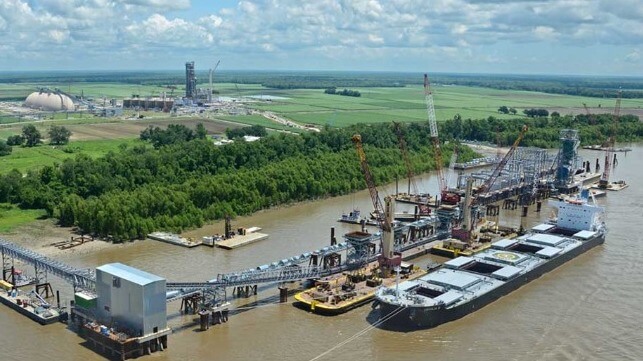Agribusiness Giant Cargill Expects to Have Zero-Carbon Ships by 2030

Agricultural commodities giant Cargill, a founding member of the Maersk Mc-Kinney Moller Center for Zero Carbon Shipping, believes that it will have at least some zero-carbon bulkers in operation by the end of this decade.
In an interview with Bloomberg, Cargill Ocean Transportation president Jan Dieleman said that he is "very confident" that the company will have zero-carbon ships in its fleet by 2030 - though the exact number may be difficult to predict. Fuel availability could be a limiting factor, as well as the pace of alternative-fuel R&D.
Cargill's fleet is vast, reflecting the scale of its operations. It currently charters about 120 Capesize bulkers, 180 Panamaxes, 120 Supramaxes, 130 Handysize and 20 coasters, transporting over 220 million tonnes of goods per year. It offers its shipping services to third-party bulk shippers, along with related services like transshipment, barging and warehousing. It also offers shipping for crude oil and other energy cargoes.
The scale of Cargill's decarbonization challenge is roughly comparable to that facing Maersk Line, which operates more than 700 boxships on global trading routes. Maersk has placed an early bet on sustainably-sourced methanol as its future fuel, banking on proven methanol-fueled engine technology and expectations about the scalability of "greener" sources of this industrial commodity.
To start off its decarbonization journey, Maersk has ordered 12 methanol-powered, 16,000 TEU boxships from Hyundai Heavy Industries. While the ships will be able to revert to traditional bunker fuel if needed, the number-two ocean carrier's objective is to run them on low-carbon / zero-carbon sources of methanol. However, the fuel supply challenge for this small fraction of Maersk's fleet provides a cautionary tale. Maersk has had to partner with six different companies - CIMC ENRIC, European Energy, Green Technology Bank, Orsted, Proman, and WasteFuel - to acquire enough methanol from green hydrogen electrolysis and from biological sources to power these 12 ships. Only three of its six suppliers are producing today, and the rest expect to be up and running by the end of 2025.
No comments:
Post a Comment